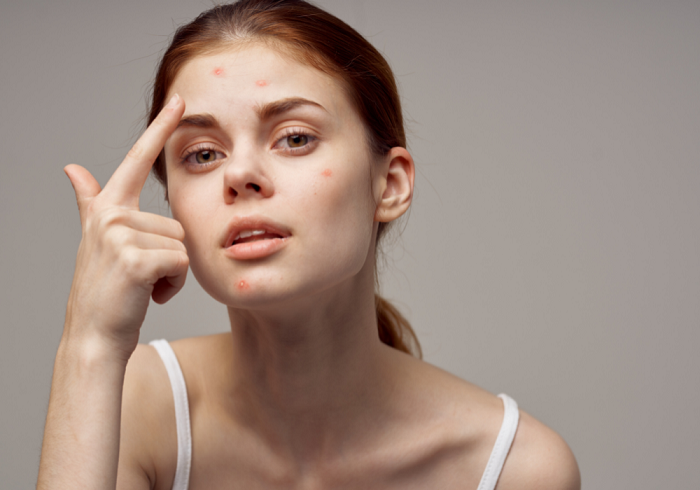The puberty is an important period in development. Marking a transformation, it occurs naturally at different ages for each child; however, it is important to ensure that it is not a case of precocious or delayed puberty.
What is precocious puberty ?
Puberty is the transitional period between the physiological state of a child and the physiological state of an adult.
It is a period during which the hormonal system will significantly develop and become active.
The development of the production of these hormones will have numerous repercussions:
- growth
- appearance of hair
- appearance of body odors with sweating
- voice change in boys
- menstruation in girls
- sometimes accompanied by changes in emotions
The normal age for the onset of puberty today in the West is between 11 and 13 years for girls and around 12 and 14 years for boys.
Puberty will therefore be considered early if it occurs before this age.

From what age can it become problematic ?
"Precocious puberty" is discussed when a girl shows signs of puberty before the age of 8 and boys before the age of 9.
Blood tests can confirm the progression of puberty through hormone production.
Unfortunately, today, there are more and more cases of early puberty, primarily in girls. Some young girls will show signs of puberty as early as 5 or 6 years old! This indicates a significant hormonal imbalance. Early puberty and the early onset of menstruation in girls will lead to the ossification of bones and thus the cessation of growth. This explains why some children experiencing early puberty will be very short in stature.
Furthermore, this can create a gap between emotional and physical maturity, which can be very difficult for many children to cope with.
What are the signs of early puberty ?
For a girl, the signs of puberty are:
- growth spurt,
- appearance of pubic hair and underarm hair,
- odorant perspiration,
- breasts that are forming,
- acne...
- then 18 to 24 months later, the first menstruation appears.
In boys, the signs of puberty are:
- pubic hair and underarm hair,
- increase in the volume of the testicles and penis,
- voice that changes,
- body odors...

Who should be consulted in case of early puberty ?
It is important to note that it is difficult to intervene once puberty has begun. Naturally, we will prioritize prevention and therefore act before the signs appear.
If signs of puberty have appeared, it is advisable to consult a doctor and an endocrinologist for additional hormonal tests, especially if the signs appear before the age of 8.
It will also be helpful to consult a naturopath in order to support the child's body and hormonal system.
Ideally, we act in prevention, but we can always move towards a rebalancing that can only be beneficial and support the body, even when the child is undergoing medical treatment.
What are the causes of early puberty ?
The causes of early puberty can be varied.
We will primarily note diet, environment, particularly endocrine disruptors, as well as genetics. endocrine disruptors are found all around us! They act by mimicking certain hormones in the body and therefore disrupt the internal balance of our body.
So they should be avoided as much as possible:
Cosmetics : shampoo, toothpaste, makeup, creams... check the list of ingredients, prioritize organic products with few ingredients, make your own cosmetics, learn to use fewer cosmetics.
Check all products, even organic ones, and especially those you use for babies and children.
Be cautious of makeup that attracts young girls and contains many chemicals, especially nail polish.
Food It seems like your message is empty. Could you please provide the text you would like translated from French to English?
• In the kitchen utensils : non-stick frying pan and saucepan, plastic wrap, plastic containers especially if they are reheated in the microwave, but also the plastic kettle, we will try to avoid bisphenols, phthalates, and all other substances that are not yet recognized as dangerous but that common sense suggests we should avoid.
The xenoestrogens present in plastic will migrate into the food during cooking.
Favor glass and stainless steel containers for kitchen utensils, reheat using a double boiler...
• In what we eat : pesticides present in non-organic foods, food additives, flavor enhancers, preservatives found in prepared and industrial foods (canned goods, chips, ready-made meals...).
For children, be cautious with bottles and baby food, especially when heated in the microwave, with cereals, milk, and non-organic meat that contain hormones and antibiotics. Avoid prepared meals, pesticides, and industrial foods.
Limit the consumption of sugar, dairy products, animal products, and processed foods for your children, especially at a young age.
Consume a water of quality, if possible filtered or osmosis-treated, and stored in a glass bottle or a stainless steel water bottle, for example.
Prioritize the fruits and vegetables Fresh, sourced from organic or sustainable agriculture, without pesticides, hormones, or antibiotics, choose homemade, simplicity.
At home : household products, laundry detergent, paints (VOCs), furniture, adhesives, electromagnetic waves, phone, Wi-Fi, Bluetooth...
But also plastic toys (bisphenols, phthalates) and painted objects, especially when they are put in the mouth by our toddlers.
Favor wooden furniture and toys, second-hand furniture that doesn't smell like glue or paint, cut off the internet as often as possible, get some fresh air, ventilate the house...
We cannot act on all the levers, but becoming aware of the impact of all this on the body is an important step towards gradually freeing ourselves from it, little by little.
Let's reconnect with nature and simplicity to live in harmony in the healthiest possible environment for us and our children.
How to naturally stop early puberty ?
The ideal approach is to act preventively to anticipate and avoid these situations. Unfortunately, once the process of puberty has begun, it will be difficult to interrupt it naturally. Of course, one can take action in the field as a possible complement to medical supervision.
How to act preventively ?
In pre-conception : by making a specific preparation before pregnancy for the parents: drainage and cleansing of toxins, mineralization, revitalization of the body ideally for both future parents. This step can be done from a few months to several years before conception.
During the pregnancy : by having a healthy diet, full of vitality, avoiding endocrine disruptors, pesticides, processed foods, and also by having a natural childbirth.
It seems like your text is incomplete. Could you please provide the full text you would like translated from French to English? postpartum : by breastfeeding her baby, having a suitable diet for the breastfeeding mother, and then introducing a variety of foods full of vitality.
Throughout childhood : by avoiding the numerous endocrine disruptors, especially for young girls
And let's add during adolescence and throughout life : particularly to avoid certain issues such as premenstrual syndrome, hormonal imbalances, etc.
And of course, communicate "and welcome the" Emotions ...of our children so that they can express themselves and share their feelings, understand what is happening in their bodies, and feel supported.
Talking about puberty, the body, and emotions is useful in all cases, whether puberty is early, normal, or late.
We still have many taboos and modesties to overcome, a multitude of false information and beliefs are circulating, especially in school playgrounds...
Informing, communicating, and sharing with our children from a very young age is essential.
And if they express the need, give them the opportunity to talk—alone or with a parent—with a professional who will be attentive, caring, and approachable.
It should be noted that little girls carry follicles, the future eggs, in their abdomen from intrauterine life, which means that it is really useful to take preventive action for future generations...
To summarize Sure, please provide the text you would like to have translated from French to English.
- Act in prevention as early as possible to provide the best conditions for our children.
- Avoid endocrine disruptors: cosmetics, toys, furniture, cleaning products, kitchen utensils, etc.
- Offering healthy, plant-based, and living food to our children
- Consult if the child shows signs of early puberty.
- Get support to act in the best way, in a comprehensive and holistic manner.




